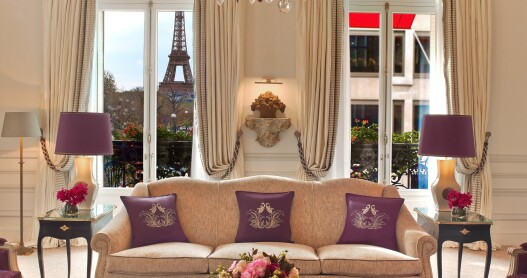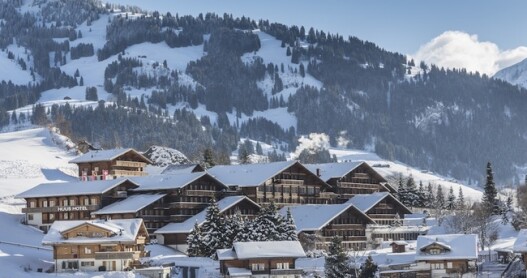Overview
When’s the best time to go to Switzerland?
Switzerland offers much to do year-round, though summer and winter are the most popular seasons to visit. Warm summer temperatures reliably lure locals out to bask on lakeshores, traipse through villages, and saunter along meadows and mountain paths. The snow-free roads open up many climbing opportunities, and intrepid visitors don ice boots on mountain trams. Many towns play host to a plethora of summer festivals. Be warned, though—flash thunderstorms are not uncommon. Depending on snowfall, the ski season begins as early as November and goes through April, though the peak time is January to March. Swiss resorts are rated among the finest in Europe and attract visitors from around the world. Without a doubt, the ski facilities are the main draw in winter—though ice skating, ice climbing, and Christmas shopping are great side shows.
How to get around Switzerland
Due to its central location, Switzerland is easily accessible from nearly anywhere in Europe. High-speed trains offer routes to and from surrounding countries, and an extensive road system enables visiting drivers to reach even remote destinations. International airports in the cities of Zurich, Geneva, and Basel are serviced by multiple airlines, including Swiss. No visitor restrictions apply for stays of up to three months, after which a visa is required.
Switzerland has pioneered one of the most efficient and sustainable transit systems in the world—and rather than buying individual journeys, travelers can access it all using the Swiss Travel Pass. Plan routes throughout the country on electric trains powered by renewable energy, hybrid-electric buses, and boats using the SBB Mobile transit app. Explore cities and towns on foot or by bicycle. Zurich’s bike-rental facilities are conveniently located at three locations throughout the city, including the main train station—simply show your passport, leave a deposit, and borrow a bike for free. When getting around by vehicle, drivers must purchase a tax disc (vignette), costing 40 Swiss francs (US$45). In winter, many mountain passes are closed, so those traveling by car should contact Automobile Club der Schweiz before making a journey or better yet, catch the train. Most trains have dedicated spaces for luggage, skis, and snowboards, and many ski hills have trams and gondolas that run straight from train station terminals. The Swiss Travel Pass offers discounts on many of the nation’s gondolas and trams.
Food and drink to try in Switzerland
A combination of three vastly different food cultures has kept the Swiss at the forefront of celebrated gastronomy. German, French, and Italian influences infuse different regions, and within these, nature-based gastronomy blends sustainable elements of food through locally sourced, farm-to-table ingredients. In the countryside, it’s not uncommon to see local farmers selling cheese on the honor system at the end of a driveway—a sign of how fresh and local food is in this country. Switzerland is home to a plethora of mountain restaurants with jaw-dropping views. Some of them require work to reach the reward, while others are a mere tram ride away. Swiss wine, though seldom exported, is excellent—and often affordable. Vineyards offering overnight stays, cycling tours, and walking trails scatter the land in many regions. Pair fine pinot noirs, chasselas, and quintessential Swiss mountain landscapes with a traditional fondue or raclette.
Culture in Switzerland
Centuries-old traditions and modern-day nuances are abundant in Switzerland’s architecture, people, cities, villages, nature, and festivals and events. Among the most celebrated festivals is Swiss National Day on August 1; on this date seven centuries ago, the regions of the area took an oath of allegiance. This foundation of modern-day Switzerland is celebrated vehemently every year, and each region marks the occasion in its own manner, usually with fireworks, bonfires, lavish parades, floats, and music. It is one time you might see the Swiss really letting loose.
Switzerland’s business ethic is offset every summer by a range of festivals. At the forefront is the Montreux Jazz Festival, which pulls in diverse artists from around the world. Set on the waterfront of Lake Geneva, this monthlong festival burgeons every year thanks to its delightful ambience, variety of music, and free entry to all but a few concerts. Lucerne’s Blue Balls Festival draws legends of rock and pop. And for one day every August, Zurich is transformed into a musical heaven during its famous annual street parade.
Tips for responsible travel in Switzerland
Switzerland’s 26 regions, or cantons, have their own customs, traditions, and—in many cases—languages. Supporting the communities and people of those regions is as easy as using a local guide, staying at a locally owned and sustainable hotel, or buying goods made in the region. But perhaps the simplest way to be a responsible traveler in Switzerland is to walk, bike, and take public transit. After all, the beauty of this country is best seen by taking it slow on foot or bike and staring out the train window with a camera in hand.
Practical Information
The currency is the Swiss franc, though sometimes euros are accepted. The country’s three main languages are French, German, and Italian (a small minority also speaks Romansh). Most of the younger generation speak English. Switzerland (and neighboring Lichtenstein) use a J plug; travelers from the U.S. and Canada will need either a SEV 1011 or Earplug converter and an adapter for 240 V electricity.














